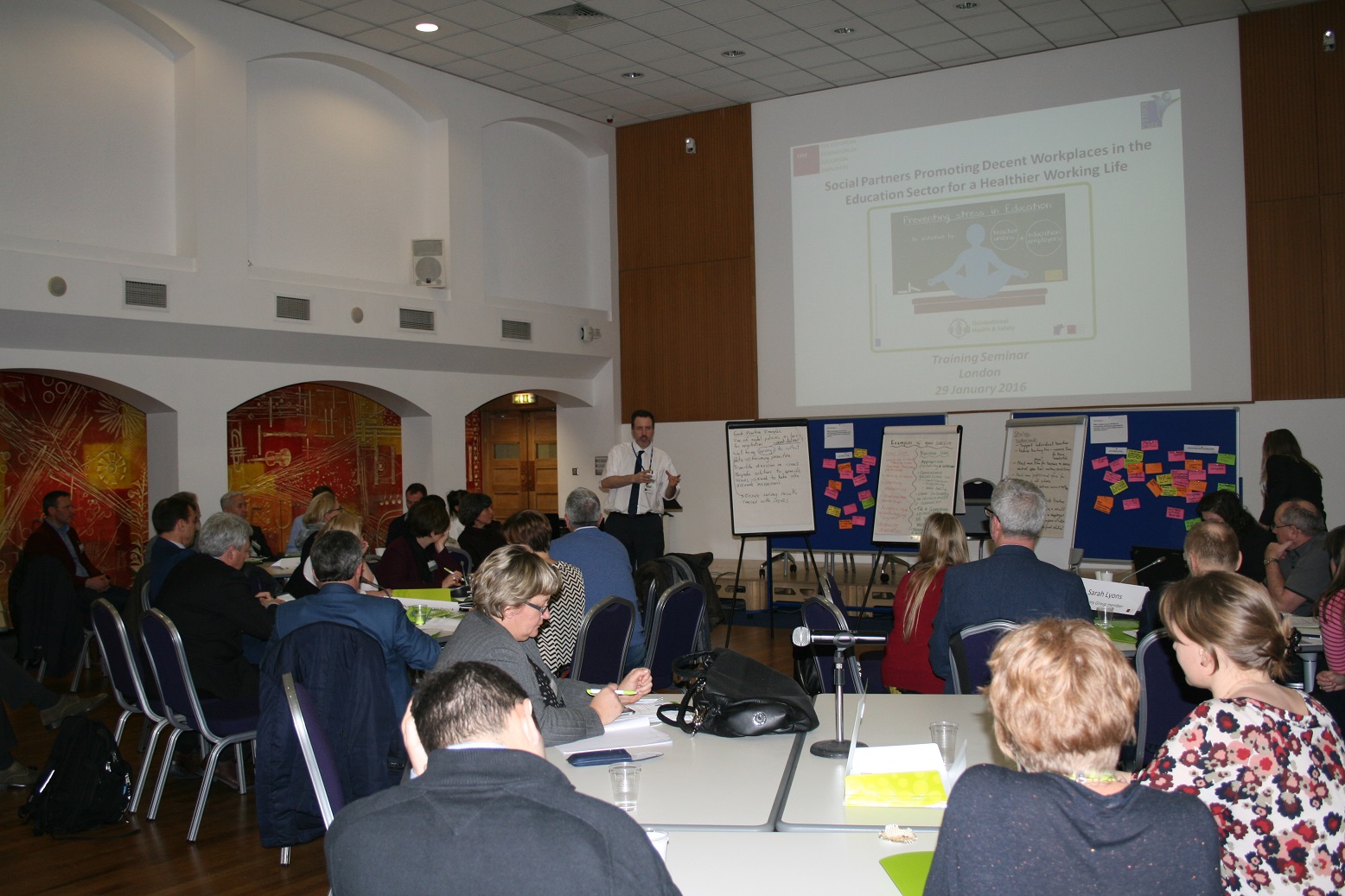Social Partners preventing Stress in Education – Second Training Seminar
Published:
On 29 January, ETUCE held the second training seminar of the project ‘Social Partners promoting Decent Workplaces in the Education Sector for a Healthier Working Life’ in London. The project objectives are to prevent work-related stress in the education sector and to promote joint social partner guidelines at national, regional and local level aiming to prepare the ground of a joint declaration with ETUCE and EFEE (European Federation of Education Employer) on this topic.
In the frame of the project ETUCE and EFEE have launched an online survey, which asked about joint social partner initiatives on tackling work-related stress. Member organisations of ETUCE and EFEE have organised four case studies in Romania, Finland, Belgium and Germany, with the support of the ETUCE secretariat. The reports of the case studies are published on the ETUCE website, explaining the good practice examples detected during the interviews with teachers, school leaders, health and safety experts and representatives from ministries and teacher unions.
At the training seminar representatives from ETUCE and EFEE member organisations had the opportunity to discuss the results of the online survey, debate on the good practice examples and exchange experience on tackling psychosocial hazards and work-related stress at national level. During a series of presentations the participants learned more about the ETUCE social partner project and about the prevention of psychosocial hazards from a European point of view. Tim Tregenza from the European Agency for Safety and Health at Work (EU OSHA) explained the major risk factors of psychosocial hazards and pointed to some national strategies and the European strategic framework on health and safety which have been developed in this field. Hans-Joachim Lincke from the research institute FFAW (Freiburg research centre for occupational sciences) gave an overview on the research project, presenting the results of the online survey and the four case studies. Inge De Troyer, the expert of the Belgian case study, and Brigitte Zilligen the expert of the German case study, explained the challenges their schools face and the initiative their school has taken regarding the prevention of work-related stress. Dave Thomas from Ashton school showcased the approach taken at his education institution to ensure a healthy working and learning environment that benefits both education staff and pupils. In the working group sessions the participants shared their own experience and their knowledge on strategies to tackle work-related stress and collected ideas for guidelines in averting psychosocial hazards.
The guidelines are going to be further discussed at the final project conference in June 2016 in Bucharest.